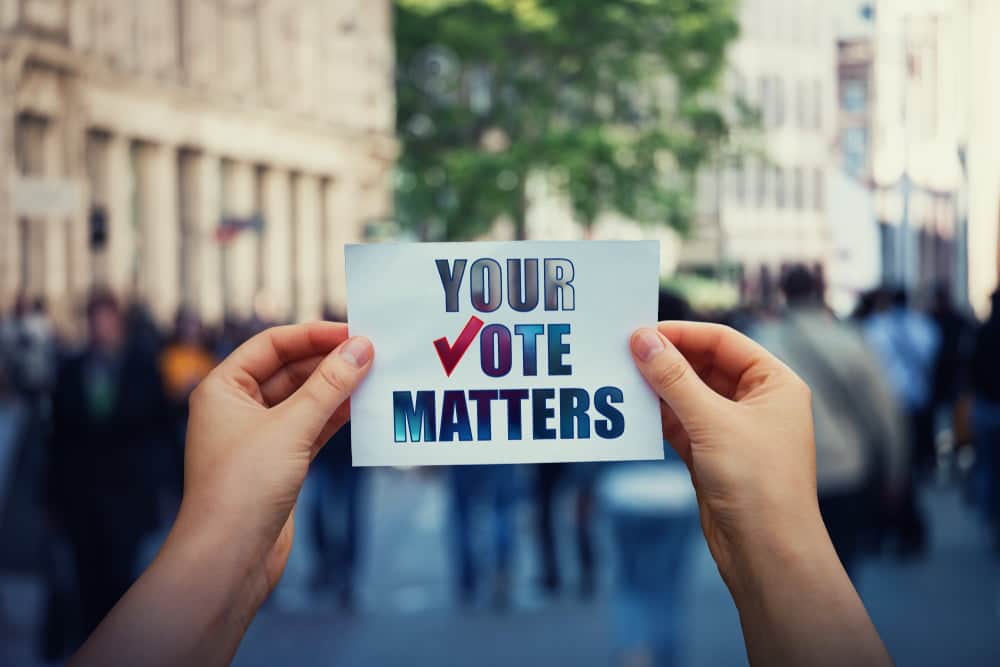The Brennan Center for Justice at NYU Law and All Voting is Local released a series of updated guides for election officials in eight swing states, including Pennsylvania, which lay out the current laws and legal protections they can use to prevent interference from “rogue” poll workers. The guides were first published in 2022 in response to reports that election deniers were being recruited to become poll workers, and were updated in 2024 to reflect any changes in state laws.
The new guides explain the state specific rules and regulations election workers must adhere to in Arizona, Florida, Georgia, Michigan, Nevada, Ohio, Pennsylvania, and Wisconsin, and specify the existing laws that prevent election deniers from disrupting elections by harassing, intimidating, or improperly influencing voters. The Pennsylvania guide contains information on the rules and constraints of being an election officer, including eligibility, chain of command, applicable laws, and available enforcement mechanisms.
To be a poll worker in Pennsylvania, individuals must be registered to vote in the districts and precincts in which they are either elected or appointed and complete mandatory training courses that detail election officers’ duties. “Their duties include checking in voters, assisting in operating voting machines, and ensuring that election returns are delivered to the county election office,” the guide says.
Election officers must also take an oath promising to perform these duties “truly and faithfully” and must complete only the specific duties they are tasked with. Additionally, they are required to answer only to state and county authorities, and not political party officials.
Under state and federal law, poll workers are prohibited from threatening and intimidating voters. Violators could face both civil and criminal liability. Pennsylvania also further prohibits any coercion that interferes with an individual’s right to vote. This includes spreading false or misleading information about voter eligibility, polling place hours and procedures, and voting methods. In addition, election officers cannot disrupt elections through disinformation or prevent eligible voters from casting a ballot.
Enforcement mechanisms to help prevent election disruptions include screening prospective poll workers, providing comprehensive training, and removing election officers who refuse to comply with their duties or the law.
“We want to make sure that election officials, poll workers, and the general public understand that there are a series of guardrails in place to ensure that these minority, fringe conspiracy theorists can’t actually do anything to subvert our elections,” Nick Pressley, All Voting is Local’s Pennsylvania State Director, told the Bucks County Beacon. “The guardrails are strong in Pennsylvania and we’ve been successful in the past at preventing any kind of infiltration that would affect people’s abilities to cast their ballots, and we will continue to do so.”
While individuals shouldn’t be prevented “from working the polls or being election officers based on their political views,” Pressley says, there need to be “rules and constraints and guardrails that ensure that election officers can’t just disrupt the election processes.” The updated guide is intended to be a reinforcement of these guardrails, which he says the general public isn’t necessarily aware of.
READ: Loss of Dozens of Experienced Election Officials Could Mean Trouble for Pennsylvania’s 2024 Election
“Elections are kind of complex and there’s a lot of work that goes into administering an election appropriately, and so sometimes mistakes are made that are relatively minor mistakes simply due to a lack of knowledge, or institutional knowledge,” Pressley said, citing the 2022 ballot paper shortage in Luzerne County. The county district attorney’s investigation found the mishap was caused by high turnover and a lack of institutional knowledge.
“This memo is a re-up to say, ‘Hey, these are the rules in case no one told you. These are the guardrails, this is your responsibility, and this is what you can do if someone’s shirking that responsibility,’” Pressley added.







